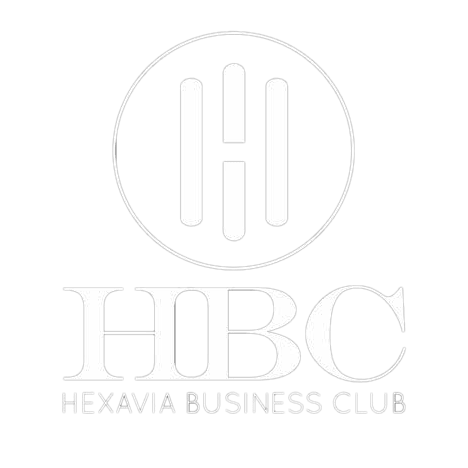As long as we are alive, we all sell; some haven’t realized it enough to be good at it. Whether life or business, the best salesman wins. Living life, especially in this business world of ours and saying that you don’t like selling is the equivalent of drowning in a river and saying you don’t like swimming!
Whether it’s a boy-girl/man-woman relationship, God-human, boss-subordinate, CEO-investors, marketer-customer, leader-follower, we all need to sell. From ideas to vision, right down to products, sell. In the marketplace, it’s getting tougher to sell, especially with the recessions and economic downturns. So, how do you sell a commodity in a time when the economy is down and people just don’t want to buy?
Lets explore a few tactics.

1. The 99 cents approach: Steve Jobs, the founder of Apple Computers used this a lot. And it probably innovated and saved the music industry. He chose a standard price of 99 cents for each song to be sold on iTunes. This helped to build a successful music download brand. Before iTunes started in 2003, hardly did anyone think about paying for music; especially if they could steal it from the Internet network. But it seemed less than a dollar, so they thought it wasn’t worth much to pay for.
In the 1960s Dave Gold and his wife owned a store that sold alcoholic drinks in southern California. They sold their wine in three price categories: $0.79, $0.99 and $1.49. When he saw that the 99-cent wine did best. So he started selling the other two at the same price and the sales went up. In 1982 the couple started several 99-cent stores across the US. Today the company is worth almost 500 million dollars and has over 280 shops. Although Gold wasn’t the first to come up with the idea, he is one of the most successful with it.
So, why does a 99-cent price tag have so much success? Maybe any price ending with a 9 means that you get, at least, a little money back. Researchers have found out that prices ending with .99 suggests a lower price for customers.
When a grocery store lowered the price of margarine from $ .89 to $ .71 the sales went up by 65% but when the same margarine was further reduced to $.69 sales rose by an unbelievable 222 %. So when shopkeepers put price tags on their products with numbers ending in a 9 the reason is simple: it looks less and you get something back.

Moving on, let’s explore a few other sales and sales closing techniques:
- Order Sheet Close: Ever Done all you can and the deal is still not closed? Well, after negotiation with most objections conquered, while talking to that person, just bring out your Order Sheet and attempt to fill it. You can say stuff like, “what name exactly do you want stated on the invoice?” If the customer doesn’t stop the closer from writing down information then the customer has almost automatically bought — he’s “closed.” But if the customer does try to stop the closer from writing, he will nearly always bring out his real and final objection. In Yaba market, the Igbo trader will say something like “nna please bring the POS machine. Na which bank you dey use”, it’s a way of subliminally closing the deal.
- The Assumption Close: while still negotiating and you’re so sure almost all the potential buyer’s assumption has been met, you can attempt to say stuff like ” why don’t you try us”. And why saying that stretch your hands for a closing handshake. In most cases the customer will automatically shake the closer’s hand (having the same effect as an unsaid yet affirmative buying answer.) This sudden and impulsive response on the customer’s part will make him feel somewhat committed; the closer, acting as if there is nothing more to be said and the deal is done, should immediately start writing up the order sheet.

3. The Now or Never Close: This trick is used to create a sense of urgency. It also helps overcome inertia; which is typical of most prospects. Here you can say something like ““This is the last one at this price.” Or “We’ve got a 20% discount just for customers who sign up today”. Maybe you can even say stuff like “If you commit to buy now, I can fast track you to the front of the implementation queue.”
- The Summary Close: Here, you are very fast talking, yet articulate in summarizing all the features of the product and end it with a closing question like “when do you want us to deliver it to you”? A good example of this is this statement “I think the best product we have here is this LG centrifugal washing machine with brushless motor, the 5-year comprehensive guarantee, noiseless, low power consumption and it even comes with free delivery and installation service. When would be a good time to deliver?”
- The Puppy Dog Close: every good pet shop knows that no one can sell a dog faster than the dog itself. So don’t try to sell the dog, let the dog sell itself. Allow the little girl and her parents to take the dog home just for a weekend and see what happens on Monday. Here, imagine your business is a pet store, the pet store salesperson tells you that you can take the puppy home with you and if you don’t like it, just bring it back. So what happens? You take the puppy with you, you play with him and run around outside with him, he licks your nose in the morning and waits for you faithfully at the door at the end of the day. And the sale is made. Not by the salesperson, but by the puppy. This can work even for people looking for jobs. It’s sort of like the freemium strategy ( where you offer premium value for free”. When they tell you no vacancy or after a job interview, how about you offer to work for free).

6. Benjamin Frank Closing : Here you layout your pros and cons but ensure that the pro by multiple times surpasses the con. This strategy seeks to place the advantages and disadvantages of the purchase side by side, with greater emphasis on the former to encourage closure. The Benjamin Franklin Closing helps the closer to display a high level of product knowledge and people generally respect those that know better than they do. You can close that deal, if not for the products or service, but for your intelligence.
Irrespective of the closing technique to be adopted, the closer must remember that a failed transaction is better than a deal that never happened. While you don’t get disappointed from the latter, the former teaches you lessons to be a better closer. Just like public speaking, you learn to sell by selling.

Strategy. Business Startups and Corporate Restructuring Consulting
T: 08035202891
Uwaoma Eizu is the lead strategist at Hexavia! He is a graduate of Mathematics with a PMP®, two MBAs and over a decade of experience working with startups and big businesses. His core is in building startups and in corporate restructuring. He is also a certified member of the Nigerian Institute of Management, Institute of Strategic Management of Nigeria and the Project Management Institute, USA. By the side, he writes weekly for the Business Day newspaper.






